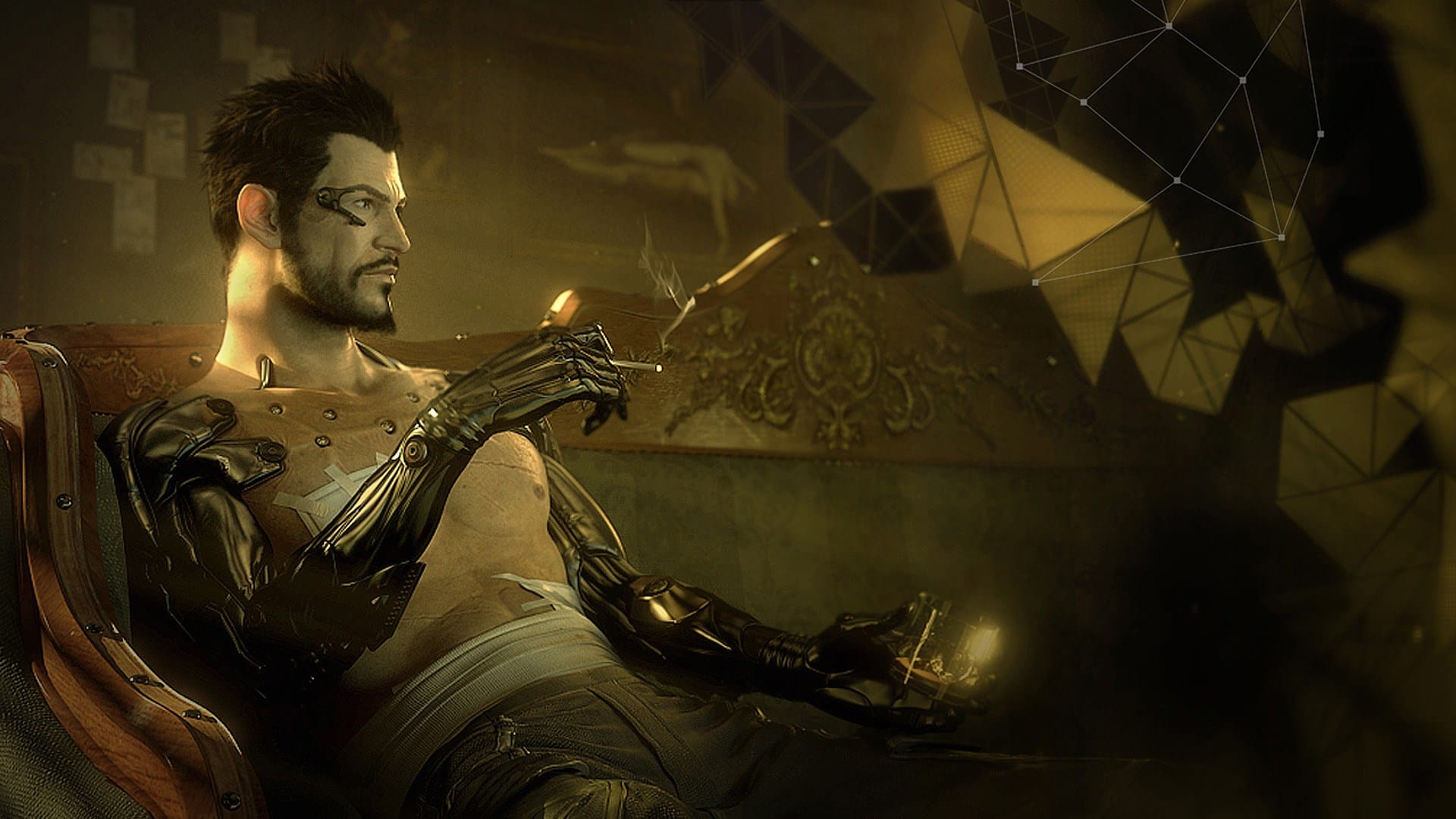

The ghetto on Prague’s outskirts is a different story, however. Less than a dozen people in a red lights district late at night just doesn’t seem right. And yet we spend most of our time in pretty similar, gray, underpopulated streets and alleyways of a couple of small districts (which load way to long), and no more than two locations could be called memorable. After all, this is a triple-A title: hoping for a big, interesting city bustling with life that has nothing to do with the player’s actions shouldn’t be wishful thinking. It didn’t really bother me in Human Revolution’s Detroit and Hengsha, but after five years I was hoping for something more. Unfortunately, there isn’t enough traffic in Prague – the policemen either stand in one place, or walk along the same paths. Mankind Divided without a doubt manages to create an immersive atmosphere, one totally different from what we’ve seen in Human Revolution. The charm of the – rather dreary – Czech capital is reinforced by the fact that the designers, once again, made sure that the language of the country that the game takes place in is actually used. Anti-augmentation attitudes can be observed everywhere: offensive graffiti, unpleasant remarks of pedestrians, and over-reacting police (I sometimes felt that half of Prague’s inhabitants are policemen). If the player does so, other passengers will scowl at Jensen during a cutscene which is displayed when a new hub loads it’s a nice little touch. In some locations, police will stop us to check Jensen’s ID – apart from places where this is justified by the plot, it can also happen if Adam doesn’t follow the segregation rules on the metro, and takes a seat among “natural” people. The atmosphere of the said mechanical apartheid is tangible at every corner of the city. And right in the middle of everything there’s Adam Jensen, the former chief of security in Sarif Industries, and now an Interpol agent and an informer of a hacker group called Juggernaut Collective, and – most notably – a man who had half his body replaced with augmentations.Ī bulk of this adventure takes place in Prague, Czech Republic. In this heavy atmosphere we’re introduced to the new game. It’s obviously in someone’s interest to exclude from society those who enhanced (or harmed, if you prefer) their bodies with augmentations. The media, controlled by advocates of the New World Order, quickly told the citizens of the dystopian Earth what they should think about the event and the people who involuntarily wreaked havoc with their own hands – and thus a mechanical apartheid begun. With all certainty, this is one of the greatest releases of this year, but does the struggle of Adam Jensen with the biggest and most dangerous Masonic lodge in the world really deliver? Augmentalipse nowĪs we all know very well, the next renaissance – sparked with overcoming the mortal boundaries of mankind with technology – has been put to an end on one tragic day in the year 2027, when augmented people lost it, and killed or injured millions of their neighbors as a result of malfunction of their implants. Considering the fact that Deus Ex: Human Revolution has set the bar pretty high, Eidos Montreal had quite a challenge to face. Creating such hype, however, is a two-edged sword, since fans’ expectations can skyrocket. The trailers were flawless, and other promotional materials only deepened my yearning for learning the next part of Adam Jensen’s fortunes and misfortunes. I can’t recall any other recent game that made me as pumped for its release as Square Enix’ Deus Ex: Mankind Divided. Only one boss, and not too demanding at that.

Bonus mission cut out from the campaign.with a disappointing finale, which comes too soon

DEUS EX HUMAN REVOLUTION VS MANKIND DIVIDED SERIES


 0 kommentar(er)
0 kommentar(er)
